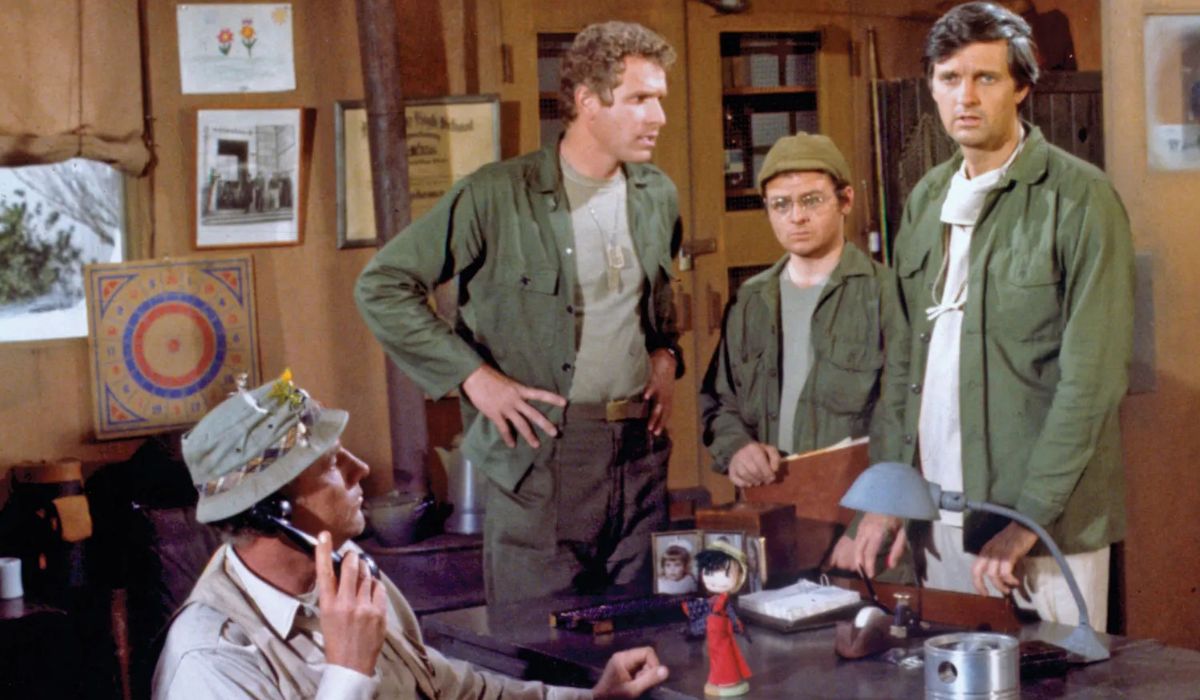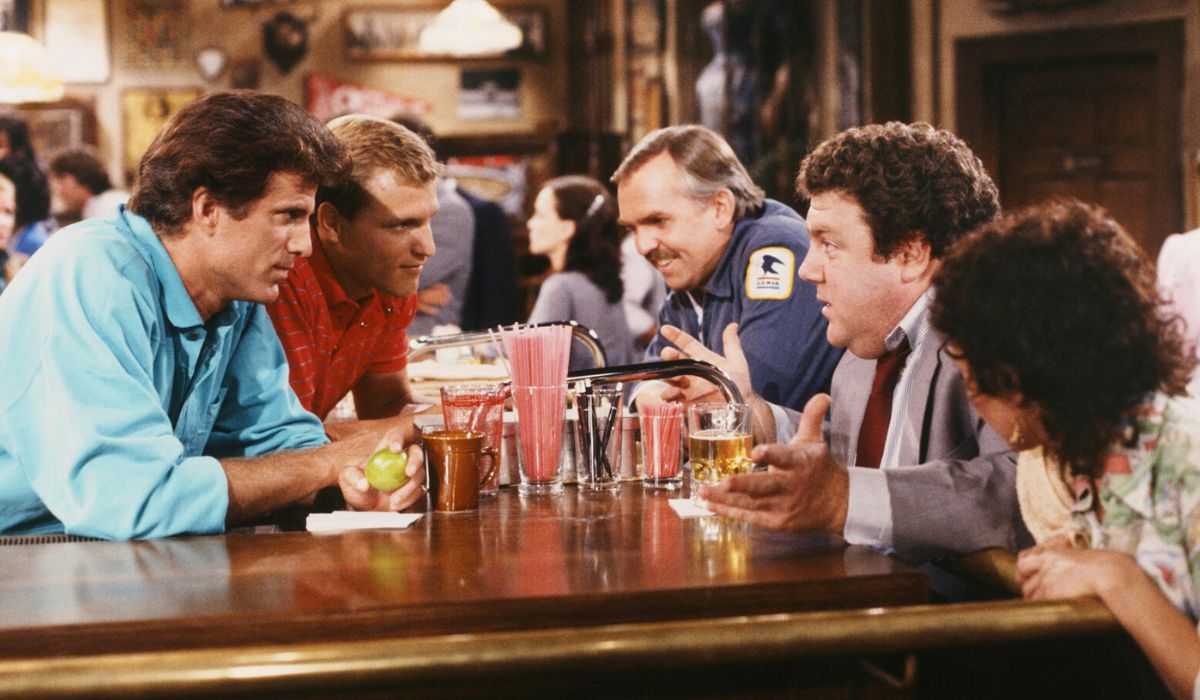
Television comedies haven’t been quite the same since the ’80s and ’90s. They’ve continuously evolved, innovated, and influenced humor for decades. Essentially, sitcoms serve as a mirror of pop culture, capturing trends, behaviors, and peculiarities from various eras and transforming them into relatable stories. In essence, they function as a social gauge. Despite significant changes in viewer preferences, some sitcoms continue to stand out as timeless classics. While some pioneered new territory, others achieved worldwide fame, but all of them left an indelible mark on the way we perceive and appreciate TV comedy.
Keeping that thought in mind, I’d like to share my top 10 favorite sitcoms throughout history. Granted, not everyone might agree, but these series have significantly shaped our understanding of what truly constitutes a sitcom.
10) M*A*S*H

M*A*S*H stood out as one of the initial television series to effectively combine humor with gravity, demonstrating that a sitcom could be both hilarious and profound. Unlike traditional sitcoms, it portrayed doctors in a mobile hospital unit during the Korean War, skillfully interweaving witty jokes with authentic scenes and heartfelt emotions. Characters like Hawkeye (Alan Alda) embodied this unique blend of sarcasm and compassion. At that time, it was a groundbreaking show that fearlessly addressed political matters while maintaining immense popularity, a feat seldom achieved in today’s entertainment landscape.
Despite hailing from the 1970s, the television series M*A*S*H continues to hold a striking contemporary relevance when given careful thought. Its finale set new American TV viewership records, captivating over 100 million viewers at the time, and subsequently garnered numerous Emmys and acclaim. In the realm of sitcoms and cultural significance, it stands as a milestone – not just one of the best in its genre, but one of the most impactful shows before the advent of streaming. To attain such success without today’s widespread reach is undeniably remarkable.
9) Arrested Development

An unusual scenario presents itself with “Arrested Development”. Despite its small viewership, the show garnered near-universal acclaim from critics. The series revolves around the Bluth family, a highly dysfunctional group striving to maintain appearances following their father’s arrest for fraud. With its intricate storyline, numerous subtle jokes, and self-referential humor, the show proved challenging for casual viewers, leading to a significant loss of the general audience. However, those who appreciated it developed an intensely dedicated fanbase.
In its era, “Arrested Development” stood out as daring, clever, and technically proficient compared to the more traditional and safe sitcoms. Shows like “30 Rock” and “Community” that followed were significantly impacted by it, and while its Netflix revival brought it wider recognition (though not quite matching its initial creative peaks), it remains a series for those who appreciate intricate details. This could be one reason why it developed a cult following; few sitcoms have matched its narrative ambition since then.
8) Cheers

While not as widely recognized nowadays, “Cheers” serves as the blueprint for the quintessential, well-crafted American sitcom. Its storyline centered around the day-to-day lives of staff and patrons at a Boston bar. Despite its simplicity, it was the execution that truly shone. The cast shared a palpable chemistry, the dialogue was witty, and although some jokes might seem a bit outdated, they still resonate. Moreover, “Cheers” expertly navigated cast changes (a rarity in sitcoms), and laid the groundwork for “Frasier,” which went on to achieve massive success.
If something seems reminiscent of traditional sitcoms today, it’s because many later shows borrowed elements from “Cheers” – this isn’t surprising at all. It set enduring standards that spanned decades, not by accident. Its series finale was massive and it almost always won awards during its seasons. Essentially, “Cheers” is a textbook example of crafting high-quality network television.
7) Modern Family

In the 2010s, Modern Family served as a fresh take on conventional sitcoms. This popular series presents three unique families – a pair of gay men raising an adopted daughter, a man married to a Colombian immigrant, and a traditional family with teenagers – through the lens of mockumentary. This style gives each scenario a lively beat and a touch of irony. At times, it may seem contrived, but from the outset, the show demonstrated its ability to balance diversity, emotion, and humor in a relatable way.
It’s not surprising that “Modern Family” won five consecutive Emmys for Best Comedy Series, given how well the cast worked together and the excellent writing. This sitcom consistently delivered on its promise of a heartfelt family comedy without becoming too sentimental. While later seasons may have shown some creative decline, the early years left a significant impression. In terms of popularity during that decade, “Modern Family” was undoubtedly one of the biggest hits.
6) The Big Bang Theory

While The Big Bang Theory may not receive critical acclaim from some quarters, the audience has wholeheartedly taken to it. The story revolves around four intellectually gifted scientists and their social escapades, particularly with an aspiring actress living next door. Given its straightforward humor, abundance of geeky references, and leaning on stereotypes, it might not appeal to everyone. However, the show manages to blend situational comedy effectively with character development. The character Sheldon (played by Jim Parsons), with his eccentric habits and catchphrases, has become a symbol of nerd culture.
Despite having a fairly conventional format, “The Big Bang Theory” continued to thrive from one season to another, attracting viewership figures comparable to some of the most successful shows before the streaming era (it’s no wonder it gave rise to several spin-offs). While the writing wasn’t always exceptional, it consistently managed to keep viewers engaged. As time passed, the characters became more complex, enabling the series to remain current. It’s a familiar, comforting sitcom that accomplishes exactly what it aims to – and it does so effectively.
5) The Office

Initially, when The Office first aired, many had their doubts about the American adaptation of the British version. However, it surpassed all predictions and became one of the most-watched comedies during the streaming era. The series focuses on staff members at Dunder Mifflin, a paper company based in Pennsylvania, using mockumentary style to explore the cringeworthy and bizarre aspects of typical office life. It’s also worth mentioning that Michael Scott, portrayed by Steve Carell, is still one of TV’s most iconic characters – he was embarrassing, clueless, yet somehow relatable. To this day, he continues to resonate with viewers across generations.
Nevertheless, the true power of the show resides equally in its supporting characters. Jim (John Krasinski), Pam (Jenna Fischer), Dwight (Rainn Wilson), and the rest of the cast developed a dynamic that blended witty humor with sincere emotional scenes. Despite experiencing a decline in quality following Carell’s departure, the show went on to become a cultural phenomenon. Much like how Seinfeld dominated ’90s comedy, The Office achieved similar success in the 2000s.
4) How I Met Your Mother

After ‘Friends’, ‘How I Met Your Mother’ was the initial sitcom that aimed to portray the same generation, and it succeeded, albeit with a significantly more complex storyline. The series centers around Ted (Josh Radnor) narrating to his children how he met their mother, while we witness his life journey alongside his group of friends. What set it apart was its innovative approach by combining romantic comedy with emotional intensity, and using cliffhangers, flashbacks, and time jumps to maintain interest and keep the content fresh.
Regardless of the debated finale, “How I Met Your Mother” provided a wealth of humor for many years and produced characters as appealing as those in “Friends”. Its structure set it apart from typical sitcoms, though not every risky move proved successful. Yet, overall, the rewards were substantial. Characters like Barney (Neil Patrick Harris) transcended the show to become pop culture icons, and the series didn’t shy away from pushing the boundaries of the genre. It wasn’t flawless, but when it found its groove, it produced some of the most imaginative scenes in contemporary sitcom history.
3) The Simpsons

For those who might question the idea, indeed animation can serve as a sitcom, and “The Simpsons” has demonstrated this for quite some time. While it may not fit neatly into the traditional definition of a sitcom, its place on such lists is undeniable. The series focuses on the lives of Homer, Marge, Bart, Lisa, and Maggie in Springfield, but it’s more about satire than family dynamics. From its inception, “The Simpsons” has offered a sharp critique of American culture, often poking fun at politics, media, society, and even television itself. It continues to be referenced today on these topics. Additionally, it’s hard to count the number of shows influenced by “The Simpsons”, but almost every adult animated comedy owes some debt to it.
The primary point being made is that the show, despite a decline in quality after its initial 10 seasons, continues to wield an immense influence. This drop in quality notwithstanding, no other production has managed such long-lasting relevance at the height of its success. They masterfully combined biting social critique with absurd humor, a blend that remained unrivaled for years.
2) Friends

Friends,” often hailed as the most beloved sitcom ever, may not stand out for its groundbreaking ideas or wit, but it shines brilliantly in terms of charm. Its appeal lies beyond its simplicity – six friends navigating work, romance, and adulthood in New York City. However, what truly sets it apart is the magnetic chemistry among the cast, the impeccable comic delivery, and its knack for creating unforgettable moments that resonated deeply with audiences. From recurring jokes to a style that influenced an entire generation, “Friends” remains iconic.
Over the course of ten seasons, Friends underwent change, as its characters developed while still maintaining their essential qualities. Although there were some contrived moments and jokes that haven’t held up over time, the show remains incredibly popular for such a long duration, making it almost ageless. Its influence endures in the form of memes, playlists, and even hairstyles. It’s impossible to discuss pop culture without mentioning it. In essence, its impact continues to resonate strongly within our collective cultural consciousness.
1) Seinfeld

It’s impossible to discuss sitcoms without bringing up “Seinfeld,” as it didn’t just innovate comedy; it reshaped viewer expectations of what a sitcom could be. The concept was daring: focusing on four New Yorkers navigating minor everyday annoyances, without traditional story arcs or didactic lessons. Despite the risk, it proved to be highly successful. The show developed its unique brand of humor, derived from the mundane becoming absurd, and the precision of each joke’s delivery was remarkable. Characters from “Seinfeld” came to symbolize self-absorption, yet in a way that kept viewers hooked – a tone that would later influence nearly every comedy produced.
Using a more conversational tone, Although some aspects of “Seinfeld” may not stand the test of time flawlessly, it remains significant for its groundbreaking contributions. Bravely choosing to end at its zenith (despite mixed feelings about the finale), it declined lucrative offers to prevent stretching things too far. Even seemingly ordinary episodes continue to shine as outstanding illustrations of what genuine television humor can achieve.
https://comicbook.com/tv-shows/news/satirical-sitcom-better-off-ted-favorite-show-streaming/embed/#
Read More
- Best Controller Settings for ARC Raiders
- DCU Nightwing Contender Addresses Casting Rumors & Reveals His Other Dream DC Role [Exclusive]
- Stephen Colbert Jokes This Could Be Next Job After Late Show Canceled
- Ashes of Creation Rogue Guide for Beginners
- 10 X-Men Batman Could Beat (Ranked By How Hard It’d Be)
- 7 Home Alone Moments That Still Make No Sense (And #2 Is a Plot Hole)
- Is XRP ETF the New Stock Market Rockstar? Find Out Why Everyone’s Obsessed!
- 10 Most Brutal Acts Of Revenge In Marvel Comics History
- Gold Rate Forecast
- Metroid Prime 4: Beyond Gets Rated T by ESRB for Release in North America
2025-07-29 18:15